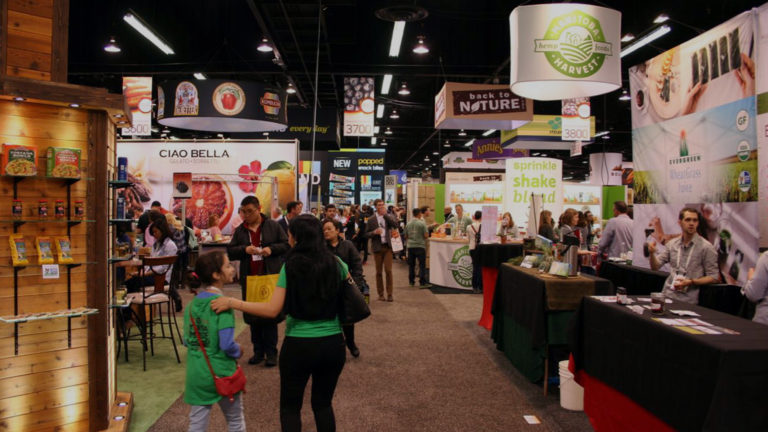When this article on the fastest-growing categories in March 2020 came across my inbox, my eye immediately went to the top of the list. Disposable gloves up 670%? Sounds about right, I hadn’t seen those on grocery shelves in weeks.
Then I saw bread machines up 652%, with flour and baking mixes following not too far behind. Curious, I had to dig in further; why were people turning to breadmaking (and baking in general) with such fervor during a global pandemic?
Here’s What Happened:
In the rush to the grocery store, as pandemic preparation ramped up, bread was one of the first things to sell out. Anticipating this situation would last a long time and wanting to minimize trips to the grocery store, many people thought ahead, purchasing flour, yeast, and other baking ingredients with some stepping foot in the baking aisle for the very first time. Those less inclined to get knee-deep kneading dough went straight to the virtual electronics aisle and acquired a bread making machine to adorn their kitchens.
Cue Google searches for “bread” hitting an all-time high, flour and yeast flying off shelves around the country and delicious baked creations hitting Instagram feeds around the world.
It would be easy to make the linear leap to functional need (fresh bread at home) being at the heart of this spike in growth, but on deeper exploration, the momentum of the home baker is underpinned by three core needs: control, comfort, and connection.
Control
The human desire for control is so essential that it’s been consistently linked with improved health and well-being. When we feel like we’re losing control, say, during a pandemic that is wreaking societal and economic havoc with no conclusive end date, it’s natural to seek ways to regain control in other aspects of our lives.
Enter baking, a long-proven antidote to the feelings of anxiety so many of us are experiencing. Baking is an inherently mindful activity, one that requires full presence and thus results in the perfect paradox of an activity that is entirely distracting from reality, yet still productive.
Baking results in something tangible, if you commit your headspace to follow the detailed, scientific process, you’re rewarded with a delicious final product. This leads to feelings of accomplishment that many have latched on to, pouring their energy and creativity to create meaning during a reality that may often feel meaningless.
For others, as modern conveniences are upended (schools and daycares closing, going grocery shopping without paralyzing fear of contracting a disease) baking has emerged as a way for people to reassert their self-reliance.
To show that they can provide for themselves and their families instead of sitting around obsessively trying to find a grocery delivery slot.
There’s a certain power for those baking the traditional way (sans bread machine), in the creation and in honing of a craft done entirely by hand. We’re experiencing primal pleasures rooted in the times when using our hands was essential for survival. Perhaps #QuarantineBaking is not quite as essential, but it appears that the psychological benefits may be just as potent.
Today’s anxiety baking pic.twitter.com/1V643TFr4a
— accidental axolotl (@thefaithasaurus) March 18, 2020
you can tell my anxiety has been bad lately by this scene from my kitchen where I’m working on baking cookies with a jar of other cookies next to it as well as a half eaten cake. someone stop me please pic.twitter.com/bJ92aOOOrf
— stephanie (@ladyyfett) April 22, 2020
Comfort
The idea of comfort goes far beyond the physical. The growth of high-comfort fashion and the global takeover of “hygge” are signals that people have been yearning for comfort long before coronavirus, but it’s never been more important than now when we’re all confined to our homes.
It’s understandable then that people have turned to baking, an activity so often tied to happy occasions and celebrations (birthdays, parties, announcements, etc.) It’s naturally connected to joy and is nearly always a treat, suggesting that people may be using baking to trick their brains, transporting themselves back to happier, more stable times.
In the quest for comfort and to regain a sense of normalcy, it’s also no surprise that people are baking recipes rooted in nostalgia.
Interestingly, when we took a look outside the baking category, we saw that people were turning to other nostalgic (and often more processed) food favorites, to give them the comfort they’re yearning for: Campbell’s soup, Goldfish crackers, Kraft Mac & Cheese and Dorito’s have all seen increased sales in the past month. Sure, perhaps that’s because these are all much easier to prepare and shelf-stable. But whether it’s nostalgia for pre-pandemic entertainment or a harkening back to the safety of childhood, there’s no doubt that comfort is a strong emotion to propel people through crisis.
A bit of nostalgia with today’s baking choice. My Nan use to make us these all the time as a kid and we would take them to every bake sale in school. I’m thinking of trying a rainbow cake next or is that too ambitious????????♀???????????? pic.twitter.com/OJ4xOpMoy4
— Miss Walls (KCA Drama Department) (@MissWallsDrama) April 6, 2020
I’m finding comfort in baking – attempting easier and more challenging things – but today I made the oatmeal scotchies I loved as a kid. Sometimes nostalgia is delicious pic.twitter.com/tLajv0Vujp
— Susan Kerns (@galfridayfilms) March 26, 2020
Connection
Bread has historical relevance as a cultivator of connection. The phrase “to break bread” literally has biblical origins with bread having symbolism as a unifier of people, a physical manifestation of the instinct to care for others.
And this sense of connection has come to life in several different ways. For some, it’s a family friendly activity, a lesson for now-homeschooled kids that doesn’t suck the life out of you. For others, it’s a way to feel connected to something even bigger than yourself, to be a part of the larger baking movement dominating social media.
The most interesting example of connection comes in the form of the sourdough starter, one that some have even described as “spiritual.” Don’t have children, pets or plants? Your sourdough starter may be the next best thing—a living organism that needs you to love, feed and care for it as if it’s your own. Encouraged by food professionals, many are going so far as to name their starters, showing that pouring your energy into another being can be a powerful force (and distraction) during troubling times.
Behold my #sourdoughstarter She’s only 3 days old and hasn’t produced anything useful yet but I’m already a proud mama. Her name is #bettywhite because she’s made of white flour and I hope she lives forever pic.twitter.com/DQrdnpp6L9
— Rev. Laura Klein (@revlauraklein) April 7, 2020
Regardless, baking has emerged as a conduit to a shared experience, something we’re all yearning for during these times.
Sound Advice
When we look ahead to post-coronavirus times, when we finally hit “recovery” and days become distinct again, we believe these three emotional levers—comfort, control, and connection—have far-reaching implications beyond the baking category. Some may jump back into normal routines and activities, but we anticipate many others will experience lingering feelings of fear, anxiety, and uncertainty.
So how will companies/brands step up to propel society to move forward? Here are some questions to consider:
- First, how quickly will people abandon their newfound love for baking after quarantine ends? Will eBay and Facebook Marketplace be flooded with secondhand bread machines or will people hold on their new habits? And for hand bakers who no longer have so much time on their hands, will this new creative pursuit stick or be left behind? Most importantly, if the former is true and these habits are here to stay, is this because people are truly attached to the emotional benefits of this craft or because they fear another return to lockdown? How else will people be hesitant to return to normal because they’re not convinced normal is here to stay?
- How might you amplify comfort, control, and connection—and mitigate the loss of these feelings?
- Consider the concept of productive distraction and desire to feel accomplished—what other ways are consumers devoting attention and mental space to previously routine categories like bread machines and baking ingredients? Laundry, cleaning, gardening (the word is that soil may be the new flour as we head into the summer months)? If consumers are craving a break from screen-related entertainment, does this open the door for ignored or “unsexy” brands step up to provide new emotional fulfillment, earning consideration and attention in our new reality?
- We’ve seen a high level of self-reflection around how these needs have manifested for people. They’ve owned the hilarity of a movement around nonstop baking through tweets, memes, and Tik-Tok videos. As a brand trying to connect with consumers around these fundamental emotional needs, how might you do so in a way that is genuine, that acknowledges the speed of communal self-reflection, and avoids cliché?
- And finally, how will the role of “home” evolve in the future and what does this mean for those brands trying to be brought into households?
We’ll be sharing our insights into the fastest Growing and Declining Categories and pandemic-related changes in consumer behavior in the weeks ahead.
Subscribe to our newsletter or follow us on LinkedIn to stay updated.


